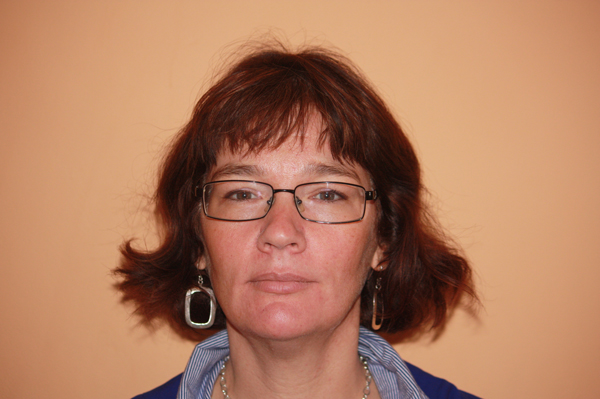 On Monday, March 31, 2014 Visiting Eakin Fellow Cheryl Suzack (Assistant Professor, Department of English, University of Toronto), will join N. Bruce Duthu (Samson Occom Professor and Chair of Native American Studies, Dartmouth College), to deliver the 2014 Eakin Lecture, Discussing Indigenous Agency. Created with the generous support of the Eakin Family in memory of William R. Eakin, The Eakin Visiting Fellowship is awarded for periods of one or two academic semesters to an active scholar focusing on studies related to Canada. The Reporter asked 4 Burning Questions to Professor Suzack, in advance of the lecture.
On Monday, March 31, 2014 Visiting Eakin Fellow Cheryl Suzack (Assistant Professor, Department of English, University of Toronto), will join N. Bruce Duthu (Samson Occom Professor and Chair of Native American Studies, Dartmouth College), to deliver the 2014 Eakin Lecture, Discussing Indigenous Agency. Created with the generous support of the Eakin Family in memory of William R. Eakin, The Eakin Visiting Fellowship is awarded for periods of one or two academic semesters to an active scholar focusing on studies related to Canada. The Reporter asked 4 Burning Questions to Professor Suzack, in advance of the lecture.
The 2014 Eakin Lecture takes place on Monday, March 31, 4:30 p.m., at the McGill Faculty Club (3450 McTavish). Register at misc.iecm@mcgill.ca. To learn more, go here.
You are the MISC’s 2014 Visiting Eakin Fellow, from the University of Toronto. What has your Eakin experience at McGill been like?
McGill University has a tremendously strong reputation outside of Quebec, one that praises the university for its innovative research and teaching practices. That reputation is richly deserved. I’ve been fortunate to attend two exemplary conferences — “The Centaur Jurisprudence Project Conference” organized by the Faculty of Law & the Centre for Human Rights and Legal Pluralism, and “Whose Truth? What Kind of Reconciliation? The Importance of Truth and Reconciliation Commissions for Promoting Democratic Good Governance” sponsored by the Institute for the Study of International Development. Both events featured international speakers with outstanding reputations and both events drew audiences of academics, students and community members. What is most impressive is that the students in my classes informed me to the events and also took part in them. The connections between research, teaching, and community outreach are strong and promising, demonstrating what a research institution can achieve through public activism and engagement.
You have been teaching a Canadian Studies course this semester “Traditional Justice and Indigenous Communities.” What do you hope students will take away from this course?
Transitional justice is one of the central mandates informing Canada’s Truth and Reconciliation Commission, instituted in 2008. It is still a relatively new concept for Western liberal democracies, although it has tremendous reach in terms of addressing systemic injustices, their historical origins and their contemporary implications. I hope my students will add their voices to this important process. From week to week, they share stories of the conferences they’ve participated in, the grass-roots organizing they are committed to, and the fundamental social and political questions that inform their studies. In many ways, they are the generation that will see the results of transitional justice as it comes to fruition in Canada. I hope that my course will motivate them to bring forward their concerns and contribute to this justice legacy.
Your Eakin Lecture is one of two back-to-back lectures, both under the theme of “Discussing Indigenous Agency.” Your lecture is titled, “Reparatory Justice, Human Rights, and Indigenous Feminisms.” Can you give readers a little preview of what you’ll be discussing?
My lecture discusses community activism undertaken by Indigenous women. It focuses on efforts by the Sahtu Dené and Heiltsuk First Nation to protect their lands from resource extraction. It suggests that local resistance needs to be understood as an encounter between insider and outsider knowledge systems that takes as its organizing premise the understanding that if these issues are not a part of your identity then you can only understand these issues in intellectual terms. Its objective is to generate dialogue about how to get beyond this impasse.
Your fellow lecturer is acclaimed U.S. legal scholar N. Bruce Duthu, who is travelling from Dartmouth College for this event. Why did you want to invite Professor Duthu to join you for this event?
Professor Duthu’s research is at the forefront of explaining how legal outcomes impact on Indigenous communities. He is an expert on tribal sovereignty and in defending the sovereign authority of tribes to engage in self-determination practices as a collectively-held right. He has also been an outspoken critic of violence against Indigenous women, showing how competing jurisdictional authorities and the erosion of tribal jurisdiction over non-members perpetuates Indigenous women’s vulnerability (see “Broken Justice in Indian Country,” New York Times, August 11, 2008). It is a rare and wonderful opportunity that the McGill Institute for the Study of Canada, the Faculty of Law, and the Department of Political Science have provided in supporting his visit and our joint lectures.
